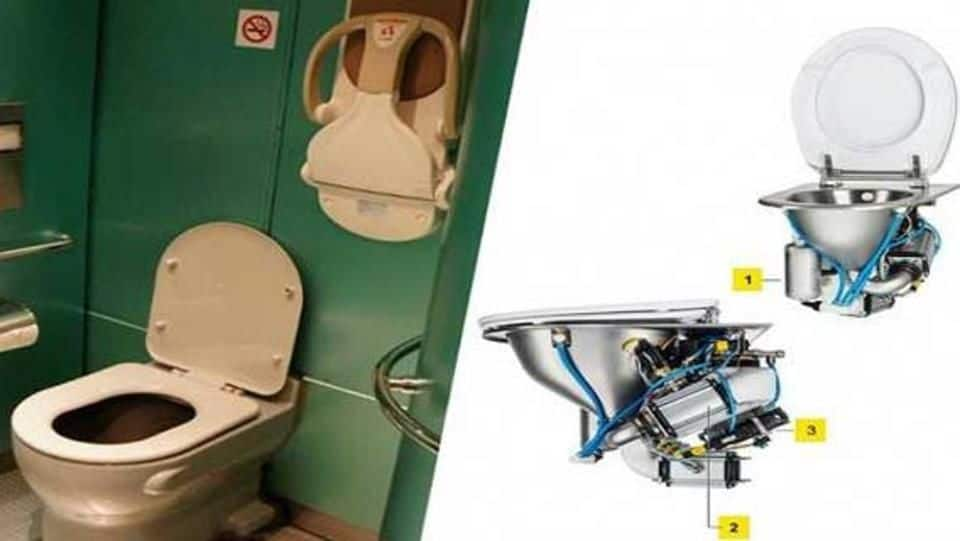
IIT study: New bio-toilets in trains comparable to septic tanks
What's the story
The Indian Institute of Technology, Madras concluded a two-year long study of the new bio-toilets being used in Indian trains. It said that the "bio-digestor" toilets are no better than septic tanks. Shockingly, these toilets have been fitted in mainline express trains and mail trains by the Railways at the cost of about Rs. 1,300cr. What else does the study say? We explain.
History
Brief history of waste-disposal in Indian Railways
Indian Railways is described as the "world's biggest toilet." It releases 497 truck-loads of excreta onto tracks every day. Since 1993, Railways is trying new technologies, but in vain. This involves "controlled-discharge" wherein waste is dropped when the train reaches 30kmph. Then, there are zero-discharge toilets which store excreta and dump them in pits for composting. In 2008, the DRDO suggested bio-toilets.
Do you know?
How do bio-toilets work?
Bio-toilets carry their own sewage-treatment systems with them. This system is placed beneath the toilet seat. The compost chamber has bacteria which digest feces, but leave behind water and methane. This water, which is disinfected later, is released on the tracks.
Criticism 1
Excreta does not undergo treatment; bacteria is not certified
Now, these tests suggest that excreta collected in bio-digestors is not treated. Comparing these to septic tanks, the report contends that these bio-digestors hoard poop with water. The mini sewage-systems are ineffective/ill-maintained as water discharged is just like raw sewage. Further, the bacterium was brought by Lokendra Singh, DRDE's former director, from Antarctica during an expedition. It doesn't have certification from a recognized organization.
Criticism 2
Bio-toilets often get choked or malfunction; manufacturing cost has increased
An Indiaspend report indicates serious issues regarding bio-toilets. Due to improper peripherals, bio-toilets often stink. They get jammed because passengers throw cigarette butts, bottles etc. and the stopcocks do not function either. Further, manufacturing cost of bio-toilets increased from Rs. 52,000 to over Rs. 75,000 per unit. After GST, the cost has increased more. Railways will probably exceed its bio-toilets budget by Rs. 1,200cr.
Earlier criticisms
Meanwhile, issues related to bio-toilets have been flagged before
Meanwhile, these issues have been flagged before. A 2009 joint study by IIT Kanpur and a Lucknow-based organization also concluded that no treatment of human excreta was happening. M Raghaviah, general secretary of the National Federation of Indian Railways had sent a letter to the railway board saying "The carriage and wagons staff is routinely facing the inconvenience of cleaning up the choked tanks."
Railways' reaction
Will Railways pay heed to this criticism?
Despite the criticism, Railways is on a tight schedule to fit the bio-toilets by Mahatma Gandhi's 150th birth anniversary in 2019. They argue that this is a novel concept and hence, problems are inevitable. Some other officials state that 95% bio-toilets fitted so far are faulty; however, authorities are silent because of pressure from the political leadership to complete the task.